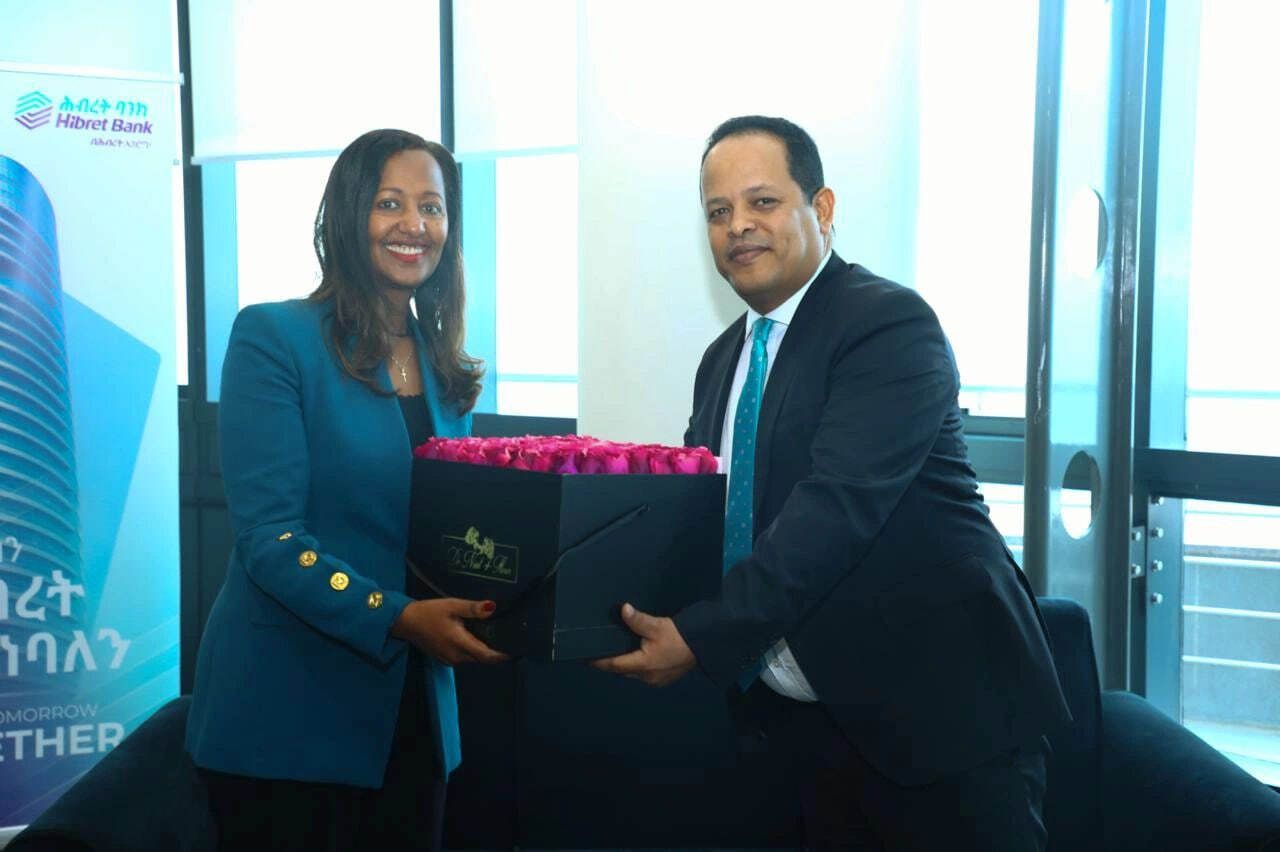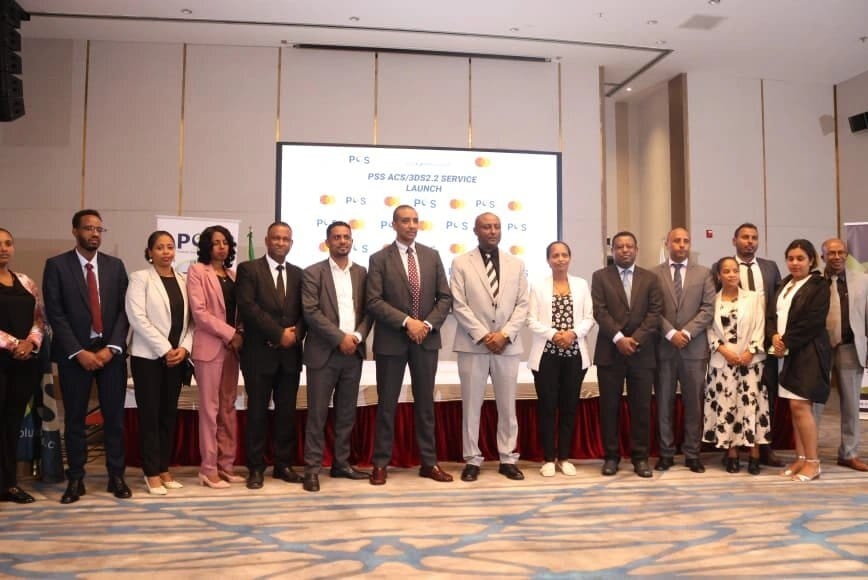
Top Stories of the Week
Ethiopia Publishes AfCFTA Tariff Regulation, Excludes Certain Goods and Services from Concessions
Negusu Gebregziabher Assumes Role as President of Hibret Bank Following Central Bank Approval
Ethiopia Maintains Ban on Chinese Sino Trucks as Forged Import Documents Rise
Ethio Telecom and Huawei Roll Out North Africa’s First Tri-Band Massive MIMO Site
PSS Brings EMV 3-D Secure Authentication to Ethiopia’s Digital Payments Landscape
Shega is an integrated information, data & intelligence solution provider. We combine trusted media, proprietary datasets, and AI-powered insight to help businesses, investors, and policymakers decode complex markets like Ethiopia and act with confidence.
Tap into our research briefs, interactive data tools, and tailored advice to turn signals into strategy, or partner with us for high-impact audience-engagement campaigns. Let’s explore what we can build together.

Looking for a phone that keeps up all day — and then some?
The new Samsung Galaxy A26 is designed for endurance. With its powerful 5,000mAh battery, you can stream, work, and create from morning to night without worrying about running out of power.
And that’s not all. The Galaxy A26 delivers Awesome Intelligence and a premium experience at an affordable price.
Key Features:
• Long-lasting 5,000mAh battery for all-day power
• 6.7” AMOLED display with 120Hz refresh rate
• Smart AI features including Circle to Search and upgraded camera performance
• Up to 6 years of Android updates
• Premium performance, budget-friendly price
📍 Available at Ethio-telecom shops: Lebu, Bole Medhanialem, Bole Tele (in front of Sheger Building), Churchill Enterprise, Churchill Premium, Arada
Stay powered, stay connected — experience #AwesomeIntelligence with the #GalaxyA26.
Ethiopia Publishes AfCFTA Tariff Regulation, Excludes Certain Goods and Services from Concessions
The Council of Ministers has ratified a regulation outlining the concession of duty tariff rates on goods for trade under the African Continental Free Trade Agreement (AfCFTA).
The 419-page regulation approved last month appeared in the Negarit Gazette last week, almost six years after Ethiopia ratified the AfCFTA agreement and four years since the AU operationalized the trade deal in January 2021.
The trade deal applies to close to 6,000 goods and services identified, of which 90 percent (category A) are subject to a zero-tariff rate immediately upon operationalization. Seven percent (category B) will see tariffs drop to zero within a 10-year period, while the remaining three percent (category C) are exempt from tariff reductions. Read more.
Bureau Rolls Out QR-Enabled IDs for Inspectors
The Addis Abeba Revenues Bureau has equipped inspectors with QR (quick response) code-integrated ID cards to curb fraud and improve transparency. Launched in Mercato, the system lets merchants verify inspectors' identities via smartphone, deterring impersonation and extortion. Read more.
Negusu Gebregziabher Assumes Role as President of Hibret Bank Following Central Bank Approval

Negusu Gebregziabher has officially begun his tenure as president of Hibret Bank, following his recent approval by the National Bank of Ethiopia (NBE). His appointment marks the end of a year-long leadership transition at the bank, which began with the departure of Melaku Kebede nearly a year ago.
Previously, Negusu served as a senior advisor to the president of the Bank of Abyssinia and brings over two decades of banking experience including a vice presidency at the Commercial Bank of Ethiopia and leadership as president of Lion International Bank from 2011 to 2014. Read more.
Ethiopia Moves to Reset Off-Grid Solar Tariffs amid New Global Alliance Deal
Officials at the Ministry of Water and Energy are preparing to set new tariff rates for off-grid solar power in the coming months as the government attempts to strike a balance between investor returns and affordability. Read more.
Ethiopia Maintains Ban on Chinese Sino Trucks as Forged Import Documents Rise

Ethiopia has stopped issuing permits for the import of Sino Trucks manufactured by China’s state-owned CNHTC, citing quality and technical issues tied to fatal accidents.
The Ministry of Transport says the ban will remain until the manufacturer addresses the defects and is urging customs officials to be vigilant about forged import documents.
Once a mainstay of Ethiopia’s construction industry, the 336 Howo model, colloquially referred to as "Red Terror," won't be coming into the country until safety issues are addressed. Read more.
Besew Online Debuts as a Platform for Transparent Hiring in Ethiopia
Ethiopia’s job-tech space has a new entrant. Haye Fintax Technologies has launched Besew Online, a platform developed over 18 months to connect job seekers with recruiters. Read more.
What’s on Our Mind
When Taxation Becomes Arbitrary, Compliance Dies
Calvin Coolidge, the 30th U.S. president, famously said, “collecting more taxes than is absolutely necessary is legalized robbery.” In the post-World War I years, he cut the top tax rate by more than half to about 25%, leading to an economic surge and increased revenue not a collapse.
That lesson, that lower rates can sometimes yield greater returns, has largely disappeared from modern fiscal orthodoxy. In the decades since World War II, Bretton Woods institutions have often prescribed the opposite: more taxes as the cure for budgetary ailments. Ethiopia is no exception. Under a four-year program backed by the IMF, the government is expected to raise the country’s tax-to-GDP ratio by seven percentage points over the next three years.
The timing could hardly be more fraught. A recent report shows Ethiopia’s tax collection, relative to its economic output, has fallen by five points over seven years, slipping to the 2022/23 fiscal year. The IFS diagnosis which dominated headlines last week, attributes the decline largely to weak compliance from the private sector. In response, the Finance Ministry appears to have heeded the recommendations with sweeping reforms and heavier levies through a new income tax law.
But piling on taxes does little good when the deeper disease is ignored. Ethiopia’s tax administration too often defies the basic canons of taxation: convenience, equality, certainty, and economy. Compliance falters not simply from private greed but from a system riddled with arbitrary enforcement. Circulars and presumptive levies override proclamations. Auditors, armed with unchecked authority but little expertise, act as final arbiters of what is owed. The result is not fairness but distrust.
When the state demands Caesar’s share, it must do so with competence, predictability, and a measure of respect. A presumption of guilt may fill headlines with new targets and inflated goals. It will not build the culture of compliance on which sustainable revenue rests. Ethiopia’s leaders would do better to recall Coolidge’s wisdom: taxation is not merely about extraction, but about trust and transparency.
New Case Study from Shega’s AKOFADA Project: How Kifiya is Transforming MSME Lending in Ethiopia

Shega explores how Kifiya’s AI-powered financial infrastructure is reshaping credit access for MSMEs, especially those excluded from formal finance.
What's Inside:
How Kifiya’s digital credit scoring uses alternative data
Role of AI and behavioral scoring in collateral-free lending
Insights into Michu, Efoyta, Abol, Malefiya, Ansar, Lewedaje
Impact on women, youth, rural entrepreneurs
Challenges in scaling inclusive finance and recommendations, Download the full report.
Blending Tradition into technology, these Ethiopian EdTech Startups are Redefining Learning
Tradition meets tech in Ethiopia. From artisan weaving & pottery to coding & robotics, 5 startups are reimagining education through personalized adaptive learning. Read more.
Ethio Telecom and Huawei Roll Out North Africa’s First Tri-Band Massive MIMO Site

Ethio Telecom and Huawei have made history in North Africa with the region's first-ever deployment of a GigaAAU FDD tri-band Massive MIMO site. This groundbreaking solution significantly improves Ethio Telecom's network both in terms of performance and user experience, and serves as a major catalyst for the region's digital economy.
The operator's live network statistics show that the solution is performing well. 4G traffic has grown by 70%, indicating the network is comfortably meeting increasing demands. Moreover, the average network speed perceived by users has gone up by an impressive 68%. The users now enjoy smooth video streaming, immersive online gaming, and fast file downloads, even during peak hours. Read more.
Ethiopian Banks Rushing for the Capital Market Badge Without a Map: Opinion
Ethiopia’s banking sector has often chased visibility over strategy, from the branch boom to the ATM rush to the skyscraper race.
Now, as capital markets open, the same momentum is pushing banks toward licenses without the governance, skills, and investor education to sustain them.
The real challenge isn’t securing the permit; it’s earning the trust and capacity to use it well. So, are we building markets for the long term, or just racing for the next badge?Read more.
PSS Brings EMV 3-D Secure Authentication to Ethiopia’s Digital Payments Landscape

Premier Switch Solutions, in partnership with Mastercard, has launched Ethiopia’s first EMV 3-D Secure-certified Access Control Server.
The locally hosted platform enables risk-based authentication for card-not-present transactions, reducing dependence on foreign infrastructure and meeting global compliance standards.
Four banks have been onboarded onto the new system, enabling customers to make secure online payments with their existing ATM card credentials. Read more.
Ethiopia Requests UN to Extend Landmine Clearance Deadline for Third Time
Ethiopia has requested the UN to again extend a deadline to clear landmines left strewn by wars old and new, placing people at risk on more than 125 million hectares of land.
Ethiopia acceded to the Anti-Personnel Mine Ban Convention (APMBC) in 2004 and was initially obligated to clear all known contamination before June 2015 a deadline that proved unattainable due to insecurity, funding constraints, and limited capacity. Read more.
Integrating Digital Payment into City Bus and Train Ticketing Systems in Ethiopia

From long queues to unpredictable wait times, Ethiopia’s urban commuters face daily challenges. The sector needs an innovative solution that can significantly reduce the issues caused by a cash-heavy transaction system.
Explore the latest report under AKOFADA (Advancing Knowledge on Financial Accessibility and DFS Adoption), our initiative dedicated to bolstering access to information on DFS in Ethiopia. The report details how integrating digital payments into city buses and trains can make public transport more efficient, transparent, and inclusive.
Visit DFS Ethiopia Hub to download the report.
Heads Up: What’s Coming & What to Catch
From Our Bookmarks